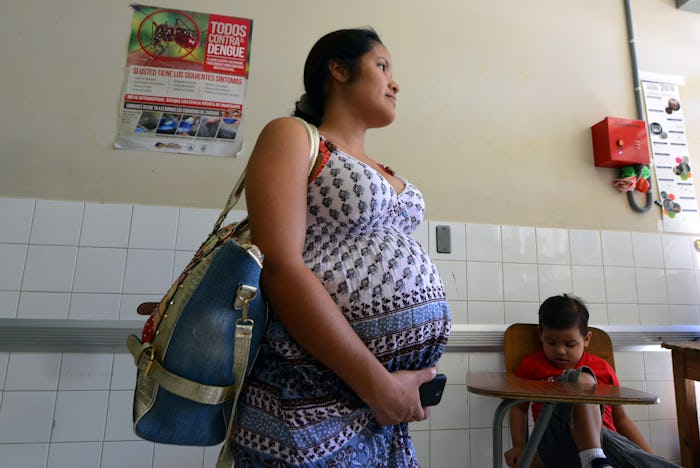Life

New Research Finds Zika Lasts Much Longer & Is More Complex If You're Pregnant
As the Zika virus continues to rapidly spread through Central and South America and makes its way into the United States, health officials and researchers have been frantically working to uncover some of the many unknowns the virus carries. Adding to the complexity surrounding the mosquito-transmitted infection, a new animal study found that Zika lasts much longer if you’re pregnant. The new information makes the threat of Zika for expecting moms even more dangerous than before, as the virus has been linked to devastating birth defects, such as microcephaly or unusually small heads and underdeveloped brains.
The study, published in the journal Nature Communications on June 28, was able to reveal more information about the complicated dangers pregnant women can possibly encounter if they become infected with the Zika virus.
Researchers from the University of Wisconsin-Madison and Duke University conducted the Zika study on a small number of monkeys — eight in total — to test the differences that happens in pregnant and non-pregnant monkeys when infected with Zika. The research found that the virus lasted longer in pregnant monkeys than in ones that were not.
Monkeys that were not pregnant recovered from the virus in about 10 days after getting infected. But, the virus lasted much longer — 30 to 70 days — in pregnant monkeys.
Researchers also found that the monkeys who were infected with Zika became immune to the virus a few weeks later, which further confirms other findings that once you’ve had the virus, you won’t get it again. Similar to a virus like the chickenpox.
The research uncovered new information that provided more insight for health officials to work more urgently to detect exactly how the virus operates in pregnant women. There are still many unknowns about the virus, including why it lasts longer in pregnant women and why some babies born to mothers with Zika develop birth defects and some do not.
More information and conclusive research makes it more possible for health officials to work towards a solution, including a vaccine for the virus. In fact, just a few weeks ago the Food and Drug Administration approved a clinical trial in humans for an experiment vaccine for the Zika virus on June 20. This significant step is the first time that a vaccine has been deemed safe enough to test on people.
As more we continue to learn more about Zika, this new study makes prevention even more important for pregnant women. Consistent insect repellent use, keeping covered up as much as possible, and not traveling to areas with Zika are some of the best ways to keep safe during these hot and humid summer months that tend to invite plenty of buzzing mosquitoes.